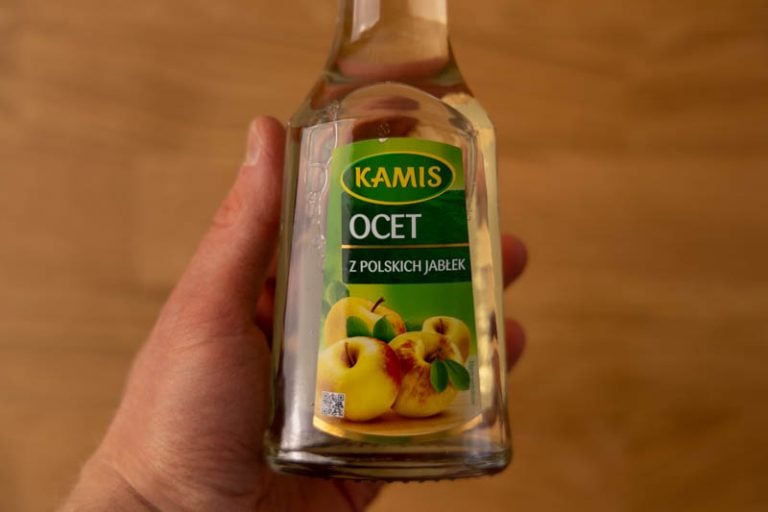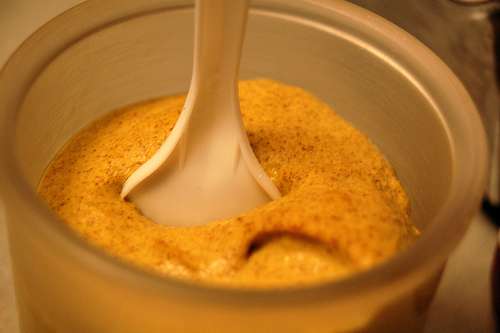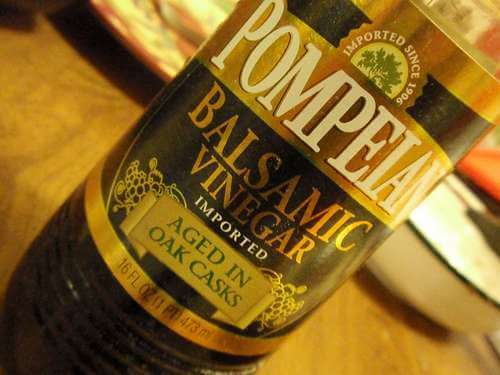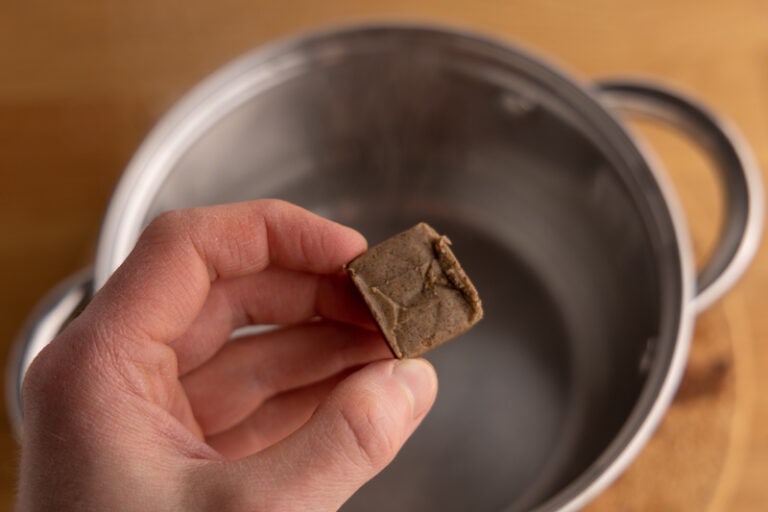How Long Does Ketchup Last?
Ketchup has a shelf life of about a year or so and usually keeps quality at least until the printed date, no matter when you open it. And more often than not, it stays safe much longer, but its quality gradually drops.
So if you have a half-open bottle that’s in the fridge for half a year already, chances are it’s perfectly safe to eat. And it probably still tastes pretty good.
Interested in learning the ins and outs of the storage, spoilage, and shelf life of ketchup?
If so, you’re in the right place. Read on.
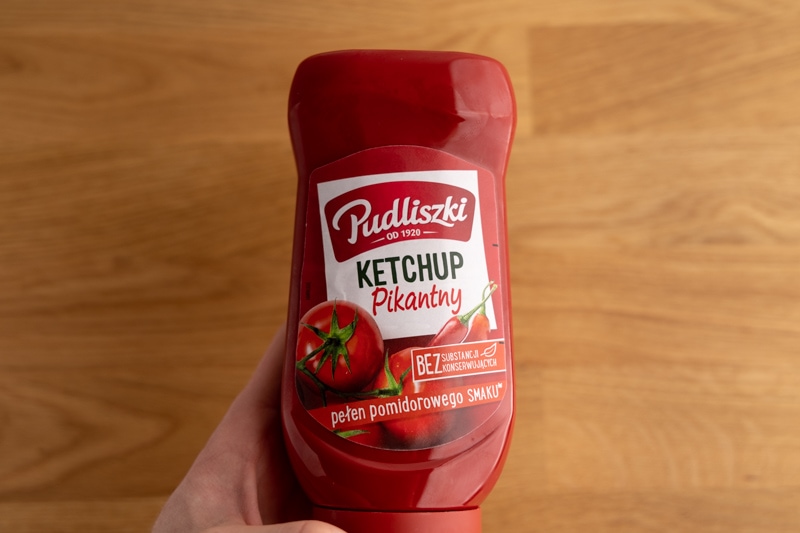
How Long Does Ketchup Last?
| Pantry | Fridge | |
|---|---|---|
| Ketchup (unopened) | Best by + 3 – 6 months | |
| Ketchup (opened) | 1 month | 6 – 12 months |
| Homemade ketchup | 1 week |
An unopened bottle of ketchup keeps for at least a couple of months past the printed date. Once opened, ketchup lasts about a month at room temperature and 6 to 12 months in the fridge.
Ketchup typically comes with a shelf life of about a year, maybe a year and a half, and it easily keeps past that date.
Once you open the bottle, ketchup should keep quality for at least 6 months, but most brands recommend going with the printed date. If your ketchup is already expired or nearing its date, 3 to 6 months of storage is a reasonable estimate.
When it comes to ketchup packets, these easily last months past the printed date. As long as the packet is intact, the ketchup should stay safe for a couple of years after its date.
(Of course, feel free to discard ketchup once you’re no longer comfortable with the date, e.g., it’s “expired” for over a year already.)
Those are the basics. Let’s discuss the details.
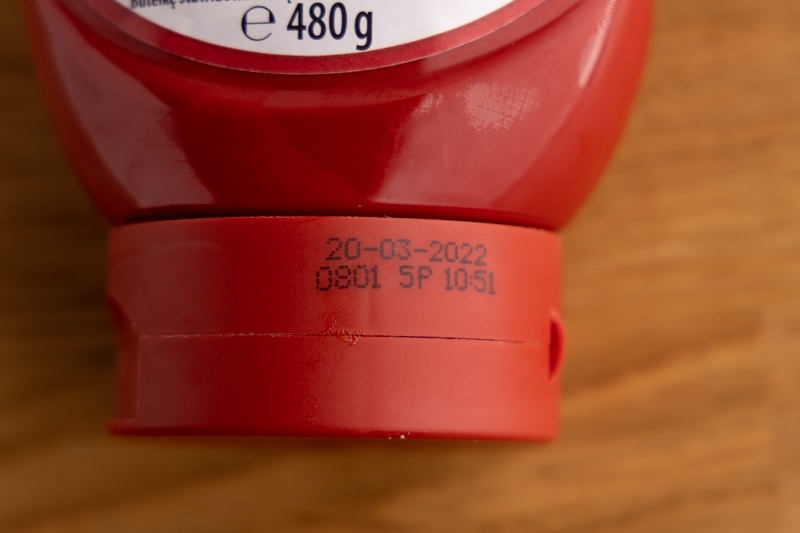
After Opening
After you open your ketchup bottle, the condiment should retain quality for at least a couple of months. That depends on the printed date, how you store it, and what the brand suggests.
Some brands have specific recommendations when it comes to how long you should store their ketchup after opening (e.g., this brand recommends only two months of storage), but many don’t.
For the latter, you can go with the printed date, and in almost all cases, you’ll be fine. Alternatively, six months of opening is another popular rule of thumb.
If you store a half-open bottle of ketchup in the pantry, it’ll keep quality for only about a month.
Of course, if your ketchup is already out-of-date or nearing it, don’t expect it to retain quality for more than 3 to maybe 6 months. It might stay fine for longer, but you never know.
Last, remember that the longer the bottle is open, the worse the quality. That means your bottle that’s open for almost a year now will probably be safe to eat but might not taste nearly as good as fresh ketchup does.
Expired Ketchup
Ketchup comes with a best-by (or best-if-used-by) date, and that date is about food quality, not safety. It’s not an “expiration date”, but rather a producer’s estimate of how long their product should retain quality.
That means ketchup should stay safe for some time after the printed date.
So, how long does ketchup last after the expiration date?
Four to six months is a pretty safe estimate, and there’s no way to give a more accurate one.
Some ketchups are better in terms of ingredients and keep the overall quality longer. Others contain more preservatives, which helps them stay fine for a prolonged period but comes at the cost of those extra chemicals on the ingredients list.
In other words, that’s not hard science. What you can do instead is this:
Open your out-of-date ketchup, check its quality (more on that in the spoilage section), and you’ll know for sure if yours is okay to eat or not.

Homemade Ketchup
Homemade ketchup lasts about a week in the fridge.
Unlike the store-bought variety, it’s not pasteurized, and therefore it’s not safe from any microbes.
Because of that, the rule of thumb is to make enough homemade ketchup for up to a week. And once a week since you whipped it passes, you throw out any leftovers. Of course, they aren’t necessarily unsafe to eat, but you never know.
Similar guidelines apply to homemade BBQ sauce and mayonnaise.
Does Ketchup Go Bad?
Ketchup can go bad in a number of ways, including mold or bottle bloating. But the thing that’s most common is that it either starts to smell sour, or the taste becomes noticeably worse. If either is the case, it’s time to discard the condiment.
Ketchup doesn’t go bad quickly, but it doesn’t retain its flavor forever.
Most of its ingredients are either natural preservatives (like vinegar, sugar, and salt), or at the very least last quite a long time (e.g., tomato paste). That combination makes it difficult for any microbes to live and multiply in ketchup, making it one of the longer-lasting condiments.
(It’s not as good at that as mustard, but it’s close.)
Because of that, it’s more likely that the taste of your ketchup will fade, and the overall quality drop below your standards before it actually grows mold.
That said, it’s not like ketchup can’t ever go bad. Far from it.
Let’s talk about the spoilage signs.
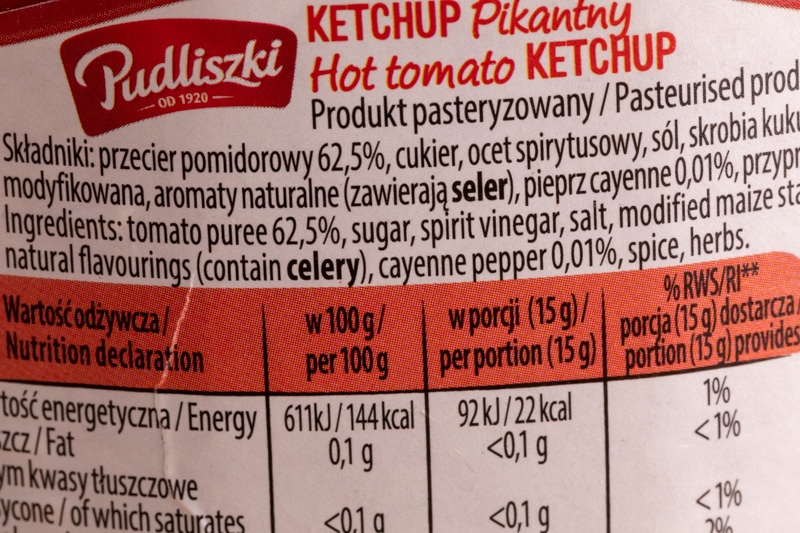
Signs of Spoilage
Throw out your ketchup if:
- The bottle is bloated or leaking. It doesn’t necessarily mean the ketchup is spoiled, but you can’t be sure it’s safe either. Better safe than sorry.
- It’s moldy. Any mold on the surface of ketchup or the bottle’s neck is rather unlikely but can happen. If it does, you know what to do.
- It has a sour, yeasty, or any other off smell. Your ketchup should smell kind of like somewhat sweet tomato paste or something similar. If that’s not the case, get rid of it.
- It tastes bad. You probably know how your ketchup is supposed to taste. If its flavor is noticeably altered, discard it. Of course, feel free to throw out ketchup that’s safe but no longer up to par quality-wise, too.
Ketchup, like hot sauce or Tabasco, may darken over time. It’s normal, and that ketchup is still perfectly safe to use, assuming everything else is okay too.

Should You Refrigerate Ketchup?
There’s no need to refrigerate store-bought ketchup that’s still unopened. After opening the bottle, it’s better to keep it in the fridge where it lasts much longer, but you can leave it on the counter too. Just remember that it loses quality much faster when stored at room temperature, and that’s why almost all brands recommend storing leftover ketchup in the fridge.
So, why do restaurants and diners don’t refrigerate ketchup?
It’s simple – going through a whole bottle in a typical diner takes only a couple of days. That’s not enough time for the condiment to lose much of its quality and flavor.
In other words, they can get away with it without any harm to the quality. If you go through a bottle of ketchup in a week, feel free to store it on the counter too.
When it comes to homemade ketchup, you should always refrigerate it. The “pantry for limited time” option applies only to store-bought ketchup.
Last, ketchup packets. If, by some sort of a miracle, you have some leftover ketchup from a packet that you want to store for later, you should refrigerate it.
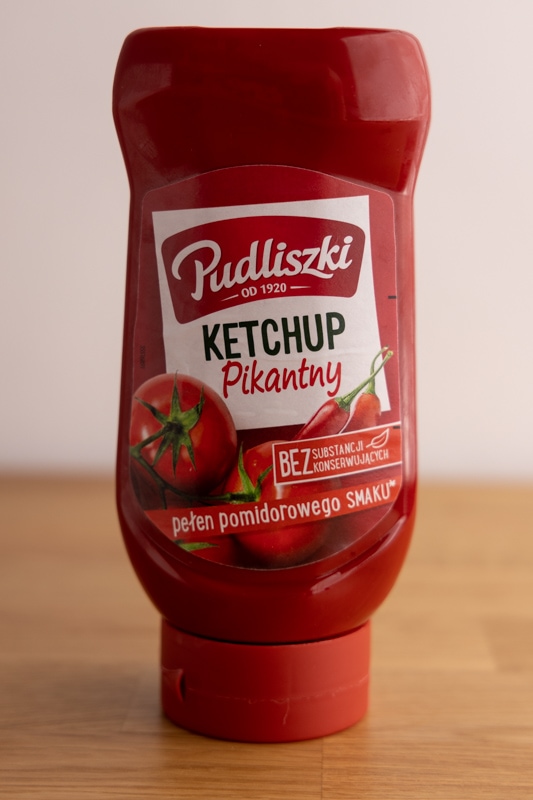
Storage Practices
Make sure your ketchup is always sealed tight when not in use. That’s the most important thing.
If you want to up your ketchup storage game a bit, there are some options.
First, you can store the bottle upside down. This way, less air gets into the sauce, which slows down oxidation. As a result, the condiment’s quality deteriorates a bit slower.
(Some ketchup bottles are designed to be stored on the cap and sometimes even have the label printed upside down.)
Next, try to keep the tip clean.
Wiping it clean with a dry paper towel after every use would be ideal, but we all know that’s not going to happen. Instead, try to do that every couple of uses, so that the buildup doesn’t become dry and gross.
If the tip is super dirty and a dry paper towel won’t cut it, dampen the towel with a bit of running water. Once the tip is nice and clean, remove any remaining moisture with a kitchen towel.
Rotten Records: Share Your Snap!
Caught some food past its prime? Upload your photo to “Rotten Records” and help others spot the signs of spoilage. Every image makes our food community safer and more informed!

